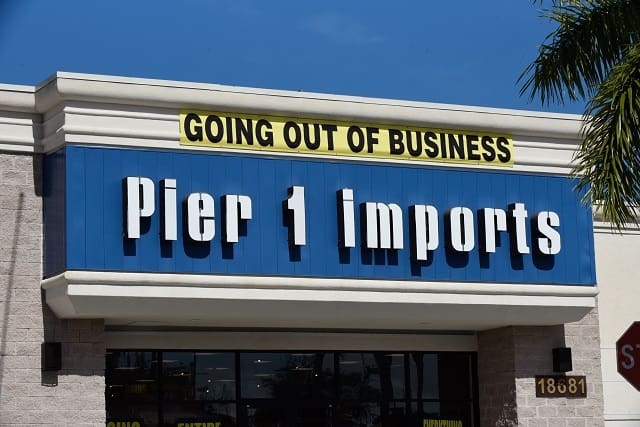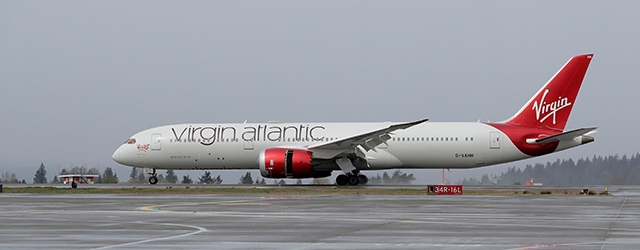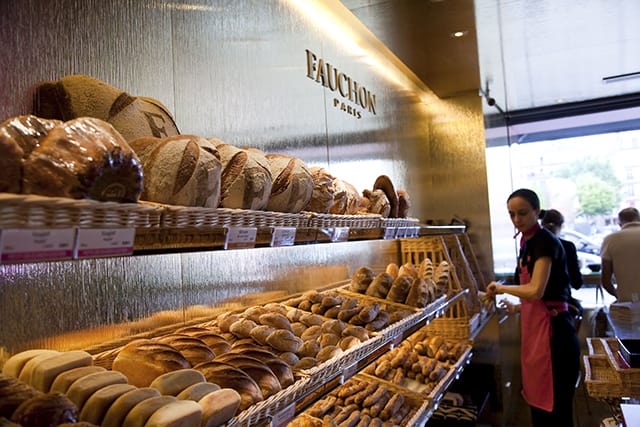Iconic brands and companies that have flourished for over a century are being damaged, wiped out, or transformed all around the global as a result of the ongoing pandemic.

Some have their stores scattered across our cities, some are unseen threads in the fabric of our country’s economy. Their products are in our homes, their airplanes flew us to new and familiar destinations, their creations entertained us. The consequences of a company filing for bankruptcy go beyond those of the entrepreneurs, the workers, the creditors involved. Entire societies and ways of living have radically shifted—the spillover effects are not only financial but often personal and deeply emotional.
As companies large and small blindsided by the coronavirus pandemic continue fighting for their survival, each day seems to bring the news of another household name buckling under the strain of its growing debt and shrinking revenues. Credit insurance company Euler Hermes estimates that by the end of 2021 all regions across the world will post double-digit increases in insolvencies, with the biggest surges expected to occur in North America (+57% compared to 2019), followed by Central and Eastern Europe (+34%), Latin America (+33%), Western Europe (+32%) and Asia (+31%). A premature withdrawal of emergency government interventions or a longer than expected global economic recovery—the insurer warns—could make things dramatically worse. By way of comparison, the projected average of insolvencies before the pandemic was +6% on annual basis.
Yet, filing for bankruptcy does not have to be the beginning of the end. Not infrequently it is the opposite, as it allows companies a second chance at gaining access to credit and at paying back their creditors an agreed-upon portion of the debt. Successful examples, although not without great sacrifices, are those of GM and Chrysler, which entered into administration during the global financial crisis and emerged—many would agree—stronger than before. In other instances, if a restructuring plan cannot be negotiated or is not effective, all the assets are liquidated to pay off the creditors and the company ceases to exist—Lehman Brothers and Enron come to mind. One can only hope that for a majority of businesses entering rescue proceedings today it won’t come to that.
United States
This is what the retailer apocalypse looks like: J.C. Penney, Neiman Marcus, J. Crew, Pier 1, Ann Taylor and Lane Bryant’s parent company Ascena, Modell’s Sporting Goods, the U.S. operations of Japanese lifestyle brand Muji, True Religion, New York & Company’s owner RTW RetailWinds, Lucky Brand, The Paper Store, Men’s Wearhouse and JoS. A. Bank’s proprietor Tailored Brands, the nation’s oldest department store Lord & Taylor and many more all filed for bankruptcy protection during the pandemic. The list goes on to include companies operating in the food service industry, where the most renowned casualties are chains like Sur La Table, Chuck E. Cheese’s CEC Entertainment, California Pizza Kitchen, the American arm of Belgian bakery Le Pan Quotidien, upscale grocery stores Dean & DeLuca, Garden Fresh Restaurants and NPC International, the parent company of Wendy’s and Pizza Hut. The most diverse types of businesses, however, have been affected—from health clubs like Gold Gym’s and 24 Hour Fitness to energy firms (Whiting Petroleum, Diamond Offshore Drilling, Hornbeck Services), from a car rental pioneer like Hertz to the 204-year old gunmaker Remington, the oldest in the country.
According to data by the American Bankruptcy Institute, the total commercial Chapter 11 filings during the first six months of the year surged 26% to 3,604 from the 2,855 in the same period in 2019. While it may seem a comparatively limited increase, experts have warned of the “Covid-19 cliff”—many distressed companies that received loans or held off from starting proceedings have likely only delayed the inevitable.
Canada
Although the country has not been hit as hard as its neighbor by the pandemic, Canadian shopping streets and malls are likely to change in a similarly drastic way. Many American companies that have filed for Chapter 11, it is no surprise, have a very strong foothold north of the border. Furthermore, Canadians will see many beloved national brands shutter locations or going out of business for good. Among them there are sporting goods retailer Sail Outdoors, tea boutique chain DavidsTea, Montreal-based shoe seller Aldo Group and clothing stores Reitmans. Particularly bitter, and not just for Canadians, has been the announcement, in June, that the Cirque du Soleil—which was founded in Quebec in 1984—was placed into administration. Forced to cancel all its international shows, the circus troupe had to furlough 95% of its workforce. Luckily, not all is lost for the company, as creditors and other investors have already shown their interest in acquiring it and keeping it touring across the globe.
Mexico
The country has been ravaged by the Covid-19 pandemic. Despite having a relatively smaller population of about 128 million, by August it had the third-highest number of coronavirus deaths in the world after the US and Brazil. According to the National Institute of Statistics, in the second quarter its GDP fell by 18.9% compared to the same period last year. With tourism accounting for 15.5% of the economy (more than in any other nation in the word followed by Spain and Italy, the World Travel and Tourism Council says), the outbreak closed a vast number of hotels and leisure-related businesses. Retailers like the furniture and appliance dealer Grupo Famsa, a chain with 379 stores in 78 Mexican cities and 22 extra outlets in Texas and Illinois, were forced to file for bankruptcy as well. Libre Abordo, a firm involved in a controversial “oil for food and water” deal with Venezuela, collapsed after the country’s president Nicolas Maduro terminated the agreement. Meanwhile, Aeromexico—the nation’s oldest legacy airline—entered into administration in June along with other important carriers in the region (more ahead).

United Kingdom
Airlines (Flybe, Virgin Atlantic), burger and restaurant chains (Byron, Carluccio’s), real estate trusts (Intu Properties), fashion retailers (Debenhams, Laura Ashley), oil drillers (Noble Corporation) and even satellite launch companies (OneWeb)—all sorts of businesses suffered the economic consequences of the pandemic in the UK. There is more: 1 out of 10 charities may close by the end of the year and over a dozen universities are said to be at risk. Along with goodwill and education, another commodity that is not doing well in times of lockdowns and social distancing is lingerie: the British branch of Victoria’s Secret too has declared bankruptcy, putting hundreds of jobs in jeopardy.
Italy
The first hotspot in the Western world to be hit by Covid-19, Italy has mostly recovered from the terrifying outbreak that hit the country early this year—its economy has not. A land of small and medium-sized enterprises, while only very few make the headlines many more are on the verge of becoming insolvent—about 20% just this year, according to the IMF.
Large companies are suffering too. With the industrial activity still in the doldrums, the tourism sector hurting and banks carrying huge piles of loans that may never be paid back, the risk of some big national employers falling off the Covid-19 cliff is substantial. In the meantime, to preserve jobs, the government has nationalized airline Alitalia and has started negotiating the return to the state of the country’s largest steel producer Ilva from the current owner, the Luxembourg-based ArcelorMittal conglomerate.
In a global economy so complex and intertwined, it also worth noting that Brooks Brothers, the legendary clothing brand founded in New York in 1818, is actually owned by an Italian—Claudio Del Vecchio, scion of the family behind the world’s largest eyewear company Luxottica. The high-end tailoring house that has dressed 41 out of 45 U.S. presidents applied for Chapter 11 protection in July. Foreign-owned and multinational firms often file for bankruptcy in the United States—all it takes is to be incorporated or have assets or operations within their borders. Not only the action has legal implications worldwide but—contrary to most foreign insolvency systems, where a trustee is appointed—filing for Chapter 11 gives the management the ability to retain control of the company and prohibits all parties from taking any action against it outside the proceedings.

France
It served macarons, jams and other delicatessens to aristocrats, stars and even to the famous (albeit only fictional) serial-killer Hannibal Lecter. Founded in 1886 in Paris, the legendary gourmet food caterer Fauchon declared bankruptcy in June, along with Oscar-winning digital media company Technicolor (which filed in the United States) and then baby store chain Orchestra Prémaman. For several weeks, Air France-KLM too stared closely at the threat of bankruptcy—it received instead a state-backed bailout, with the French and Dutch government shareholders offering a lifeline worth 11 billion euros.
If the list of the notable French bankruptcies or quasi-bankruptcies is short it is not because the country has not suffered greatly from the Covid-19 pandemic. The economy contracted by a record 13.8% in the second quarter of the year, and the return to pre-coronavirus levels is not forecasted to occur before 2022. Central governor François Villeroy de Galhau has explained that France has not seen a surge in bankruptcies as a result of government policies that have cushioned the impact of the outbreak on businesses—including the implementation of a €300 billion loan scheme to support small and medium-sized companies. Not only that, like many other European countries, France has for the moment suspended firms’ obligation to file for bankruptcy if they can prove their financial difficulties were caused by Covid-19. What will happen once these exemptions expire remains to be seen.
Germany
Among the companies that filed for bankruptcy there is even a soccer team, and not just any soccer team: the FC Kaiserslautern has won the German championship four times. Yet, it should be little wonder: with no games scheduled for months in most countries, hundreds of clubs across Europe are now facing financial ruin. A number of retailers, like anywhere else, were also placed into administration: among them, restaurant franchises Vapiano and Maredo, the country’s largest department store Galeria Karstadt Kaufhof and all the subsidiaries of Hong Kong-listed manufacturer of clothing and accessories Esprit (all the stores in Asia except in China will close down as well). Airline powerhouse Lufthansa too risked business rescue proceedings. In May, however, the German government swooped in with a multibillion bailout deal that turned the state into the company’s biggest shareholder. As for the notorious case of payment firm Wirecard, it can be safely argued that the $2.1 billion accounting hole, and not Covid-19, was the reason for being declared insolvent.
Japan
This year Japan was hoping that the Olympic Games, scheduled in Tokyo from the last week of July to the first of August, would bring an economic windfall. Instead, the country found itself battling against an outbreak of coronavirus infections so severe that, in May, due to closures and reduced operating hours, bankruptcy courts could barely process any applications. Among the few, that of the century-old clothing company Renown, which was subsequently also delisted from the Tokyo Stock Exchange. When the courts re-opened in June, a record-high 780 firms filed for insolvency, including the country’s largest tour operator White Bear Family, which was supposed to be one of the primary recipients of that just-mentioned economic windfall. On a side note, even the contemporary artist Takashi Murakami—who has worked with everyone from Louis Vuitton to Kanye West and even Hello Kitty (or, to be more precise, her licensing firm)—has said in July that his company Kaikai Kiki was facing bankruptcy.
South Africa
It has become almost commonplace that African nations have been less impacted by Covid-19—things, as ever, are more complicated. That is certainly not the case of South Africa, which—with a population of just 60 million—accounts for half of the confirmed cases on the continent (500,000 by the end of July) and ranks fifth globally after the US, Brazil, India and Russia.
Businesses, it goes without saying, suffered considerably. In March, Edcon—a sprawling retail empire with more than 20,000 staff and over 1,000 stores in several African countries—was the first big company to file for bankruptcy. Regional carrier Comair and sport betting group Phumelela Gaming & Leisure followed suit. In the meantime, South African Airways—which was already under business rescue before the pandemic struck—barely avoided liquidation and remains under supervision. Many other businesses shut down or downsized: Flight Centre—the country’s largest travel company—closed 40% of its stores; publisher Associated Magazines folded after 38 years while Caxton and Media24 terminated several print publications; countless hotels, restaurants and bars might never reopen again.
Other Countries
If the list airline bankruptcies did not seem long enough, here are some more: Latin America’s largest carrier Latam Airlines (Chile), the second-largest Avianca (Colombia), Thai Airways and Nok Airlines (Thailand), Virgin Australia, Air Deccan (India), Blue Air (Romania), Air Mauritius, SunExpress Deutschland (jointly owned by Lufthansa and Turkish Airlines), Level Europe (Austria), BRA Braathens Regional Airlines (Norwegian-owned Swedish airline).
The ever-growing inventory of prominent companies that have gone into administration also includes: grocery retailer Agrocastell, restaurant chain 100 Montaditos and cruise line Pullmantur (Spain), communications satellite services provider Intelsat Corporation (Luxembourg), furniture and appliance retailer Smiths City (New Zealand), oil trader Hin Leong (Singapore), telecom provider Digicel (Jamaica), hospital operator NMC Healthcare (United Arab Emirates) and Sweden’s largest fashion retailer MQ. To name just a few.



